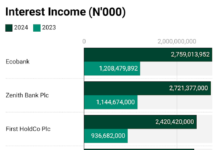Oil prices steady as Russia-Ukraine peace talks loom
Oil prices were little changed Monday, as investors eyed developments on a potential Russia-Ukraine peace deal that could ease sanctions disrupting global supply flows.
According to Reuters, Brent crude futures edged lower 8 cents, or 0.11%, to $74.66 a barrel at 1202 GMT, and U.S. West Texas Intermediate crude fell 5 cents, or 0.07% at $70.69 a barrel.
The market also continued to watch the progress of peace talks, after U.S. President Donald Trump and his administration officials announced they had begun discussions with Russia to end the war in Ukraine.
“Should sanctions relief allow it, we believe Brent crude oil prices could drop between $5 and $10/bbl if Russian barrels suddenly do not need to make a long journey to India or China, and more supply is suddenly made available,” BofA analysts said in a note.
“Global refining margins could fall as well. While margins have been normalizing since the Ukraine War started, they could go even lower under sanctions relief for diesel,” the analysts added.
Trump said on Sunday he believes he could meet very soon with Russian President Vladimir Putin to discuss ending the war in Ukraine. The U.S. and Russia are preparing for initial talks in Saudi Arabia in the coming days.
TRADE WAR
Meanwhile, the risk of a global trade war is capping prices after Trump last week ordered commerce and economic officials to study reciprocal tariffs against countries that place tariffs on U.S. goods and to return their recommendations by April 1.
“Fundamentals still point to oversupply this year, with the market struggling to assess the potential magnitude of this due to the negative impacts of U.S. tariffs on demand growth, coupled with the potential easing of Russian sanctions,” said Panmure Liberum analyst Ashley Kelty.
Separately, Bloomberg News reported that OPEC+ is considering delaying monthly supply increases set to begin in April, despite President Trump’s calls to lower prices.
However, Russian Deputy Prime Minister Novak denied any plans to delay, according to RIA state news agency.
Crude prices received support from a weaker U.S. dollar and reduced oil flows via the Caspian Pipeline Consortium (CPC).
The dollar index hovered near a two-month low on weaker-than-expected U.S retail data for January.
Oil flows via CPC were reduced after a drone struck the Kropotkinskaya pumping station in Russia’s southern Krasnodar region, CPC said in a statement.
The CPC transports oil from Kazakhstan’s Tengiz field to the Russian port of Novorossiisk, while Ukraine has repeatedly targeted Russian energy infrastructure with drone strikes, including in the southern Krasnodar region.
“Although those drone attacks so far had limited disruption impacts on Russian crude exports, the rising frequency of those attacks is a concern that at some point it triggers some supply risks,” UBS analyst Giovanni Staunovo said.
In the U.S., energy firms last week added oil and natural gas rigs for a third week in a row for the first time since December 2023, energy services firm Baker Hughes said in its report on Friday.

























